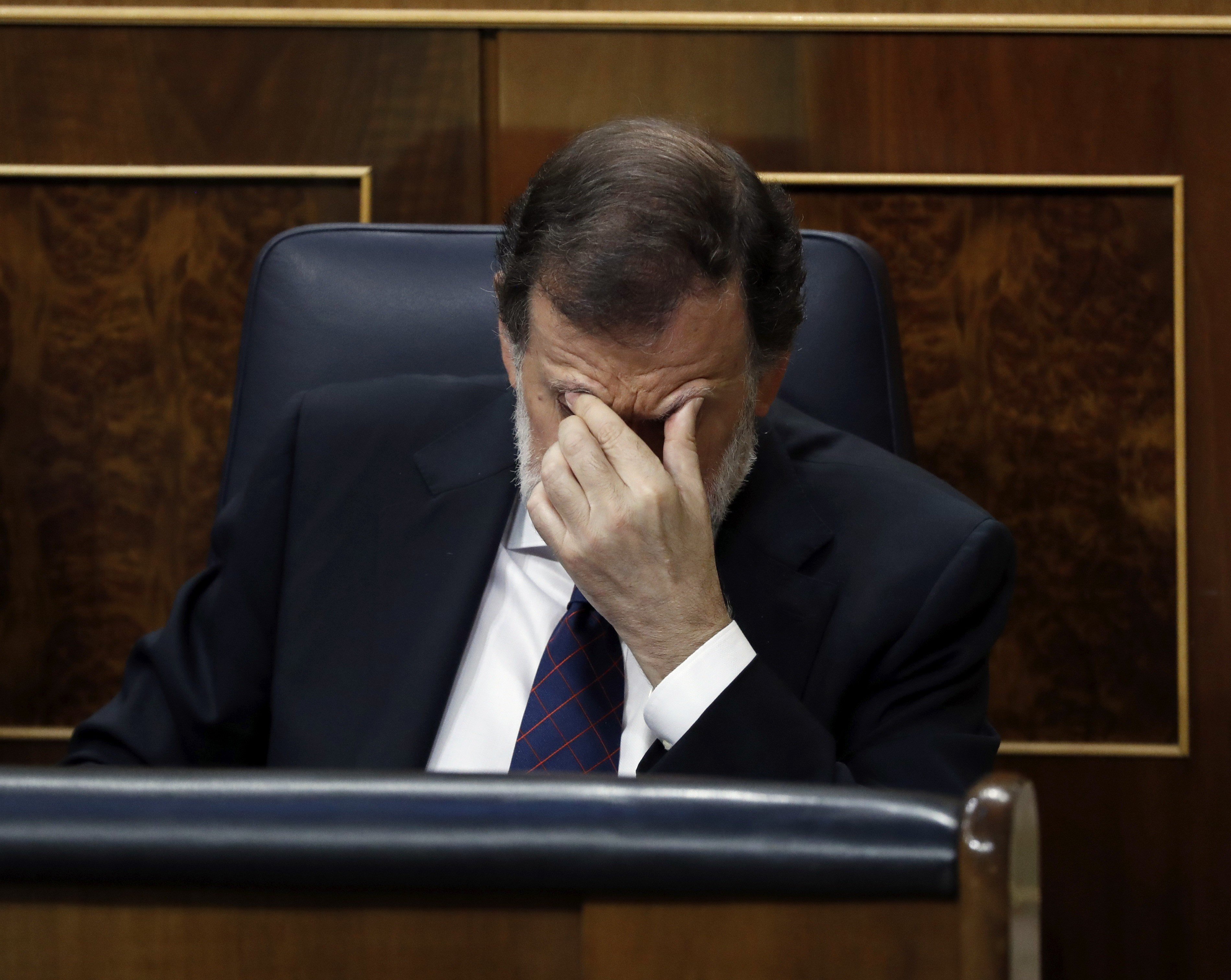The battle between PSOE (Spanish Socialist Workers' Party) and Ciudadanos (Citizens) over the issue of Catalonia in the Spanish Congress this Tuesday lasted until the very last moment. It was a fight which brought the Spanish legislature to an unprecedented scene of political irrationality: the chamber positioning itself against the institutions of the State (the government, the Public Prosecutor, the courts). The institutions plans to block the 1st October referendum were voted against by PSOE, Podemos (We Can), ERC (Catalan Republic Left), PDeCAT (Catalan European Democratic Party), PNV (Basque Nationalist Party) and EH Bildu (Basque Country Unite). Voting in favour were Ciudadanos and the governing PP (Popular Party), whilst 5 PSOE deputies abstained, curiously, some from Andalucia, Susana Diaz' terrain, a symbol of the old guard.
The proposal of support came from Ciudadanos and was based on four points:
1) To support the executive, the Constitutional Court, the Public Prosecutor's Office and the other representatives of legal power and the public authorities in the defence of democratic law in Catalonia and, in particular, "in all the measures that are necessary and adopted proportionally to prevent the organisation of the referendum".
2) To communicate the support of the Congress to "all the civil servants of the state" whose work guarantees the security, the rights and the liberties of Spanish citizens and, especially, of the citizens of Catalonia.
3) To urge the Spanish government to "prevent the use of public resources" to realise any acts destined to promote, prepare or execute the independence referendum.
4) To recognise "the citizens of Catalonia who, regardless of ideology, respect the democratic laws and the Rule of Law, as essential values to guarantee our coexistence"
PSOE had nothing against the proposition a priori, but asked for the inclusion of an amendment adding two other points: support for the mayors and the opening of dialogue with the Catalan government. "The language of victors and the vanquished must be avoided. On 2nd [October], we'll also have to sit down to find a solution to the conflict", was one of the arguments from deputy Meritxell Batet (PSOE). Nonetheless, Ciudadanos sources refused to negotiate with "participants in a coup". Albert Rivera, Ciudadanos' leader, refused to accept the amendment if it contained that point, forcing PSOE's "no" vote.
Moments of uncertainty bubbled up throughout the afternoon in the face of the potential consequences if Pedro Sánchez's PSOE didn't abstain, leading to last minute negotiations in the corridors. One of the deputies, Soraya Rodríguez, said she had voted very consciously to abstain because, although she was against Ciudadanos' move, she couldn't go against the Rule of Law. On the other hand, Antonio Pradas and one of his fellow deputies from Andalucia said that they'd made a mistake.
The reasons for the rivalry between PSOE and Ciudadanos are the failed motion of no-confidence in Catalonia and Rivera's rejection of Sánchez's territorial "show commission"
The Spanish government doesn't want to admit that this is, at least visually, a blow to Rajoy. Deputy prime minister Soraya Sáenz de Santamaría said that they were the government and didn't get involved in evaluating the actions of other parties, noting that PSOE as well as Ciudadanos did give support to the executive's actions to block the referendum. Curiously, this has all happened the same day PSOE has again distanced itself from applying article 155 of the Spanish Constitution which would give the government broad powers over rebellious autonomous communities. She argued, during the debate, for supporting Ciudadanos because they couldn't tolerate "any pro-rupture blackmail against democracy".
Other parties
For Podemos, Xavier Domènech criticised PP for not having proposed a political offer and said that Mariano Rajoy had turned the constitutional model into a "democratic militancy", where anything goes, like confiscating posters, preventing meetings to discuss the right to decide, searching printing houses and identifying citizens participating actively in 'yes' campaign events. PDeCAT, though Jordi Xuclà, said that Ciudadanos "paid lip service to liberalism" because "they don't worry about the violation of liberties in Catalonia".
Esther Capella of ERC and Aitor Esteban of PNV denounced the treatment Ciudadanos tends to give nationalism. Capella said that Rivera was confusing nationalism with independentism, that you could be a nationalist but be a "democrat". "You hope that we'll stay through force, through imposition", she said. Esteban said that Ciudadanos were "more Catholic than the Pope", the Pope in this case being PP, and criticised a tweet from spokesperson Juan Carlos Girauta saying that Ciudadanos had "puesto los cojones" in Catalonia, a slightly vulgar way of saying they'd provided the motivation, the impetus.
And in the middle of this improbable situation, a PP source pointed out one of the ideas that could explain the PSOE/Ciudadanos rivalry: Ciudadanos motion of no-confidence in Catalonia against Carles Puigdemont's government which never materialised. There is also the fact that Ciudadanos has described as being a "show commission" the space PSOE has managed to bring before the Congress to discuss the territorial conflict, which Albert Rivera's deputies completely refuse to attend.

